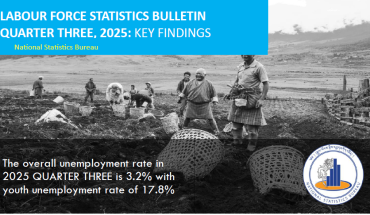
PEMA TSHOMO
Thimphu
The private sector has called for urgent reforms in the country’s licensing and permit regulations. It also highlighted inconsistencies, delays, and a fragmented regulatory landscape as major barriers to sustainable economic growth and foreign investment.
According to the Business Regulatory Process Review Report 2024, the current framework, marked by inefficiencies and unclear policies. So, it has become a focal point of discussion between government agencies and the business community. Which underscores the need for a streamlined and transparent system to foster entrepreneurship and investment.
One of the critical challenges lies in the lack of uniformity in the application of licensing regulations across various government agencies.
Irrational fees, cumbersome sector-specific clearances, and inconsistent implementation of rules have created significant barriers to market entry for local businesses and Foreign Direct Investment (FDI) projects.
As per the given report, to address these issues, stakeholders have proposed the enactment of an Enterprise Registration Act. Particularly, which would harmonize licensing requirements and improve the ease of doing business.
However, the legislation remains stalled in parliament, impeding progress toward a more cohesive regulatory environment the report presented.
Meanwhile, the report state, “The cabinet circular issued in April 2023 allowed certified one- and two-star hotels to cater to tourists, yet the assessment and categorization of these hotels by the Department of Tourism (DoT) remain pending.”
It added the delay has resulted in tourists staying in non-certified accommodations, such as apartments listed on platforms like Airbnb, undermining the intended policy objectives.
Tour operators have also raised concerns about outdated terminologies in the Tourism Rules and Regulations (TRR) 2022, which have not been updated to reflect recent initiatives like MICE (Meetings, Incentives, Conferences, and Exhibitions) tourism and Sustainable Development Fee (SDF) waivers for border towns as included in the report.
This misalignment has caused confusion for international agents and weakened Bhutan’s competitiveness in the global tourism market.
The private sector has proposed several solutions to these challenges. The Ministry of Foreign Affairs and External Trade (MoFAET) has been urged to clarify and update the status of entry and exit routes for tourists through key border points.
For hotels, the DoT is expected to expedite the assessment of one- and two-star establishments and strengthen monitoring mechanisms to ensure compliance.
In addition, the DoT has been asked to revise the TRR 2022 to incorporate recent policy changes and directives from the government.
Beyond tourism, other sectors also face significant regulatory hurdles as it mentioned in this particular report.
While, the private training institutes and education consultancy firms have called for more flexible licensing conditions to accommodate diverse operational models.
Similarly, the media and entertainment industry has highlighted restrictions on filming locations and drone usage as barriers to growth. So, it is urging the government to streamline permit processes to position Bhutan as a favorable destination for international film projects.
The report highlighted the unlicensed online businesses present as another challenge. Which poses a registered companies citing unfair competition and inadequate regulatory oversight.
It also proposed for stricter enforcement measures and punitive actions against unregistered entities reflect the private sector’s demand for a level playing field.
Moreover, the issues surrounding visa processing, route permits, and medical clearances further underscore the need for streamlined bureaucratic procedures.
Indirectly, such delays and bottlenecks in these areas have hampered productivity and discouraged investment in key industries.
Whereas, in the handicraft and cable TV sectors, as well as environmental clearance processes, businesses have called for adaptive regulatory frameworks that strike a balance between growth and cultural or ecological preservation as shown in the report.
The challenges in Bhutan’s regulatory landscape have drawn attention to the urgent need for collaborative efforts between government agencies and the private sector.
According to the report, “By addressing inefficiencies, harmonizing regulations, and ensuring transparent governance, Bhutan can create an enabling environment conducive to private sector development and economic prosperity.”
The report states simplifying licensing and permit processes will not only improve the ease of doing business but also enhance productivity, competitiveness, and investment across sectors.
To this end, the Ministry of Foreign Affairs and External Trade, along with the Department of Tourism under the Ministry of Industry, Commerce, and Employment (MoICE), has been identified as a lead agency for implementing reforms.
The report also presented such recommendations, which include updating the TRR 2022 to reflect government structural changes, certifying low-star hotels promptly, and closely monitoring non-certified accommodations to ensure compliance with regulations.
“These measures, if implemented effectively, could pave the way for a more sustainable and competitive business environment, unlocking the country’s potential for growth and development in the years to come,” the report further highlights.




